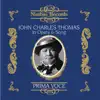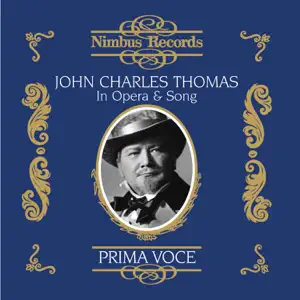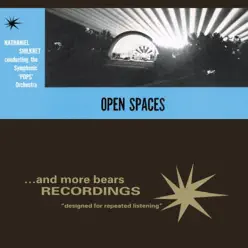


Acerca de Nathaniel Shilkret
Nathaniel "Nat" Shilkret was born in Queens and came up through the ranks of New York's then-numerous community orchestras as a "boy wonder" clarinetist; he also played violin and piano and took lessons with George Gershwin's teacher, Charles Hambitzer. By the time Shilkret was 18, he was a member of the New York Philharmonic; he would also play with the Metropolitan Opera Orchestra and in Arthur Pryor's Band. In 1915, Shilkret began working for Victor as an arranger and conductor, yet did not earn a credit on records until 1921 when he teamed with drummer and Victor executive Eddie King to form the Shilking Orchestra. The silly name was retired after only three records, but the basic 8-10 musicians who made up the Shilking continued on under Shilkret's direction, producing numerous popular music selections to suit Victor's various needs. Aided by guest performers and filled out by sidemen, the Shilking appeared on Victor Records as the Great White Way Orchestra, the Manhattan Merrymakers, the Troubadours, Victor Salon Orchestra, International Novelty Orchestra, Hilo Hawaiian Orchestra, All-Star Orchestra, and so on. The device Shilkret and the Victor Orchestra didn't appear on records until the release of "Barcelona," a novelty hit with a Billy Murray vocal, in 1926.nnShilkret relied on star soloists to help set his records apart from the stiff competition in the 1920s record market. The All-Star Orchestra, a Shilking variant that lasted from 1926 to 1929, boasted at various times the talents of Miff Mole, Joe Venuti, Tommy Dorsey, Glenn Miller, and Jimmy McPartland, and launched the recording career of the young Benny Goodman. Shilkret sometimes borrowed soloists from the Paul Whiteman Orchestra to cover special work, and this irritated Whiteman. Whiteman walked out on an April 1927 session for Rhapsody in Blue after an argument with George Gershwin and was not pleased to find the recording finished and released, under Whiteman's name, with Shilkret leading. Whiteman, along with King, moved to Columbia at the start of 1928; Shilkret took the heat for Whiteman's noisome departure, but remained with Victor, in some capacity or another, until 1945. Shilkret led the Victor Orchestra through many of the symphonic jazz works that Whiteman did not record and contributed to the genre himself with the symphonic poem Skyward. Shilkret also led the first U.S. performances of Gershwin's An American in Paris and made its first recording in 1929, featuring George Gershwin on celeste.nnShilkret's involvement in broadcasting began with the Maxwell House Coffee Hour Orchestra in 1927 and continued on several network programs through at least 1935, when he left New York for Hollywood.nnShilkret's first film score, for Lilac Time (1928), came with the dawn of sound, and his Viennese salon-styled theme song "Jeannine (I Dream of Lilac Time)" became an enormous success, one of the first hit songs from a motion picture. Throughout the early '30s, Shilkret scored short subjects and took advantage of other work available from the New York end of the movie business. Once in Hollywood, RKO reunited Shilkret with the Gershwins to work on the Astaire/Rogers vehicles Shall We Dance and Swingtime. Ultimately, though, most of Shilkret's Hollywood work was done in short subjects, though that included cartoon music for Walter Lantz and several films with Laurel and Hardy; he was nominated for the Academy Award for Best Score for Winterset (1936). After George Gershwin suddenly died in 1937, Shilkret led the memorial concert for Gershwin at the Hollywood Bowl.nnShilkret established himself as a music publisher in 1940, writing a trombone concerto for Tommy Dorsey, among other works. In 1945, Shilkret mounted the lavish production of the Genesis Suite, a multipart history of Judaism with collaborative entries by Igor Stravinsky, Arnold Schoenberg, Ernest Toch, Darius Milhaud, and others.nnAfterward, Shilkret continued to work in the movie business, but effectively retired in 1958 when his wife passed away. Shilkret lived to be 94 and died totally forgotten; along the way he lost all of his music in a house fire. However, posterity is slowly recognizing his merit -- the Genesis Suite has become recognized as a major event in American Jewish culture, Shilkret's involvement in symphonic jazz is viewed as central to the genre, and the many happy, hot, and semi-hot dance records he made in the 1920s and early '30s form a respectable legacy unto themselves.
Discografía de Nathaniel Shilkret
33 discos

Open Spaces
2018

Grand Opera in English, Vol. 7
2018

Americana, Vol. 3
2018
Ver todos los discos
Nosotros
Notas
